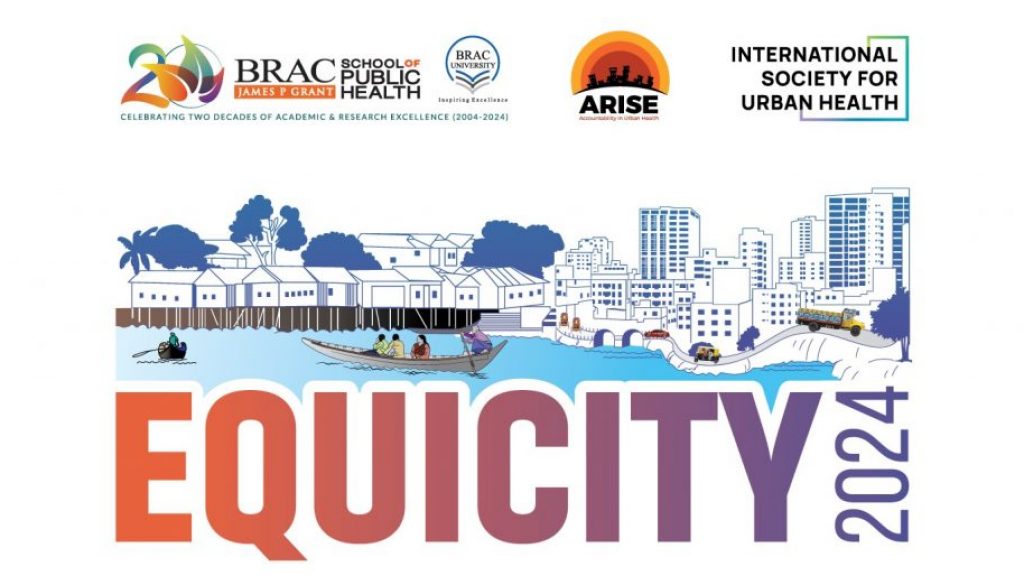Equicity 2024: Advancing urban health through knowledge exchange from the global south
Please note, due to ongoing protests in Bangladesh the conference dates have been moved, and will now be taking place from 27th to 29th of August.
Taking place between the 27th and 29th of August, this conference is a joint collaboration between ARISE, BRAC James P. Grant School of Public Health, BRAC University, and the International Society of Urban Health (ISUH). The conference is designed with a primary focus on spotlighting urban health and equity in the Global South. The conference will see 100+ speakers from the South Asian region, Kenya, Sierra Leone, UK and USA, as well as hybrid representation from European countries.
The objective of this conference is to establish a collaborative forum for the discussion of evidence, challenges, innovations, and priorities concerning urban health and equity in the Global South. It seeks to foster critical learning and dialogue across diverse contexts and issues. We will examine and discuss evidence on implementation practices, obstacles, innovations, and research methodologies within various contexts. The emphasis will be on the lived experiences of communities and insights from practitioners and organizations, with a commitment to contextualising and localising knowledge to ensure its relevance and applicability within the Global South. Additionally, the conference will highlight the current leadership of key stakeholders to inform the development of effective policies, programmes, and community-centered designs for urbanisation, urban health, and equity, with a view towards sustainability.
There is an urgent imperative to decolonise knowledge, amplify voices and perspectives from the Global South, and address both current and emerging issues in urban health and equity across low- and middle-income countries. Policy and practice should not be driven by a top-down approach and avoid being solely driven by Northern-led priorities and understandings. Recognising the need for meaningful and transparent partnerships, there is a call for equitable research and collaborative implementation models. This requires a paradigm shift towards learning and capacity sharing from the South to the North, as well as among countries within the Global South. This conference and its partnerships embody the principles of collaborative and equitable engagement.
Objectives of the Conference
- Amplify voices and perspectives from the Global South addressing current and emerging health risks and issues in urban health equity across low- and middle-income countries.
- Promote the sharing of evidence from the Global South, enhancing the development of localised effective, equitable, and context-specific policies and practice in global health and development initiatives.
- Highlight innovative and contextually relevant methodological approaches, such as intersectionality, grounded empirical research, and social science methods, in data collection, analysis, and implementation research for action. This aims to advance more representative knowledge production from the Global South.
- Examine the impact of emerging issues to develop strategies for building resilient cities through addressing environmental challenges (such as heat, water, sanitation, hygiene (WASH), and air quality); gender-specific challenges and solutions in sexual and reproductive health and rights (SRHR); and emerging infectious diseases.
- Expand beyond the biomedical (disease centric) model of health, to integrate social, economic, political, cultural, spiritual, and psychosocial dimensions of health equity and well-being.
- Showcase powerful narratives and artworks presenting lived experiences and innovative solutions emerging from communities to foster a deeper understanding of urban health and equity issues.
